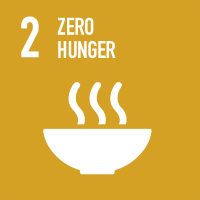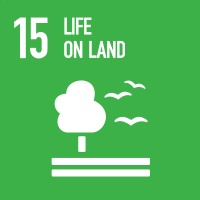Studying at the University of Verona
Here you can find information on the organisational aspects of the Programme, lecture timetables, learning activities and useful contact details for your time at the University, from enrolment to graduation.
Study Plan
This information is intended exclusively for students already enrolled in this course.If you are a new student interested in enrolling, you can find information about the course of study on the course page:
Laurea magistrale in Biotecnologie agro-alimentari - Enrollment from 2025/2026The Study Plan includes all modules, teaching and learning activities that each student will need to undertake during their time at the University.
Please select your Study Plan based on your enrollment year.
1° Year
| Modules | Credits | TAF | SSD |
|---|
2 modules among the following2° Year activated in the A.Y. 2023/2024
| Modules | Credits | TAF | SSD |
|---|
3 modules among the following| Modules | Credits | TAF | SSD |
|---|
2 modules among the following| Modules | Credits | TAF | SSD |
|---|
3 modules among the following| Modules | Credits | TAF | SSD |
|---|
Legend | Type of training activity (TTA)
TAF (Type of Educational Activity) All courses and activities are classified into different types of educational activities, indicated by a letter.
Biochemistry and physiology of plant-soil interaction (2023/2024)
Teaching code
4S02783
Teacher
Coordinator
Credits
6
Language
Italian
Scientific Disciplinary Sector (SSD)
AGR/13 - AGRICULTURAL CHEMISTRY
Period
Semester 1 dal Oct 2, 2023 al Jan 26, 2024.
Courses Single
Authorized with reserve
Learning objectives
Aim of the course is to introduce the students to the knowledge of the different plant responses to modifications in soil conditions with particular emphasis on plant nutrition. After a first introduction on the structural/functional characteristics of soil environment, the effects of nutrient fluctuations, the presence of natural and anthropic (e.g. biostimulants) organic molecules and microorganisms will be described. All these themes will be approached at molecular, biochemical and physiological levels. We intend to give an integrated view of the dynamics taking place at the rhizosphere involving roots cellular activities and associated metabolic modifications.
Prerequisites and basic notions
To follow the course and pass the exam, knowledge of basic notions (bachelor) of chemistry, biology, biochemistry is required.
Program
-The main global problems of agriculture and the related subjects of scientific research.
- Problems and importance of soil in the environmental and productive context.
- Soil formation and horizons (notes).
-The rhizosphere.
-Soil constituents.
-Rocks (notes).
-Structure and properties of soil minerals.
-Structure and properties of clays.
-Other soil minerals (notes).
-Analyses of particle size and soil texture.
-Soil organic matter: constituents and their chemical properties.
-The functions of soil organic matter.
-Biological effects of humic substances.
-Biostimulants.
-The carbon cycle in the soil and transformation process of organic matter.
-The origin of charges on the surface of solid components.
-Cation and anion exchange capacity.
-Soil pH.
-The soil solution and the concept of nutrient availability
-Movement of nutrient in the soil.
- Membrane transport proteins at the root plasma membrane: structure and functions
-N forms in soil.
-Nitrate and ammonium uptake systems and the role of PM H+-ATPase
-Molecular aspects of nitrate uptake: NRT1, NRT2, NAR e AMT1 genes.
-P forms in soil. Plants responses to P stress. Pht genes.
-Lupin as model plant for the study of P stress.
-S forms in soil. Molecular physiology of sulphate uptake. Sultr genes.
-K forms in soil. Molecular physiology of K+ uptake: AKT e HAK genes.
-Mg and Ca in soil. Biochemical roles of Mg and Ca and molecular physiology of their uptake.
-Fe in soil: reactions and forms. The problem of calcareous soils. Physiological plant responses to Fe stress: strategy I and II. The role of IRT, FRO, H+-ATPase, YS1 and TOM genes.
-Fe and soil humic substances: complexing and interfering actions on acquisition mechanisms.
-Molecular aspects of B, Zn, Mn e Cu uptake systems (notes).
Bibliography
Didactic methods
The course will be delivered through face-to-face lectures. Lessons will not be provided in other ways except limited to students who, due to Covid, cannot access the University upon presentation of the relative request on the appropriate form. In these cases, the teacher will provide additional teaching
Learning assessment procedures
The exam consists in an oral colloquium both for attending and not-attending students.
Evaluation criteria
The exam is aimed at evaluating the student's knowledge of the whole program of the course paying attention to the depth of acquired knowledge and the ability to systematically connect topics.
Criteria for the composition of the final grade
The mark will be expressed in 30-point scale.
Exam language
Italiano



